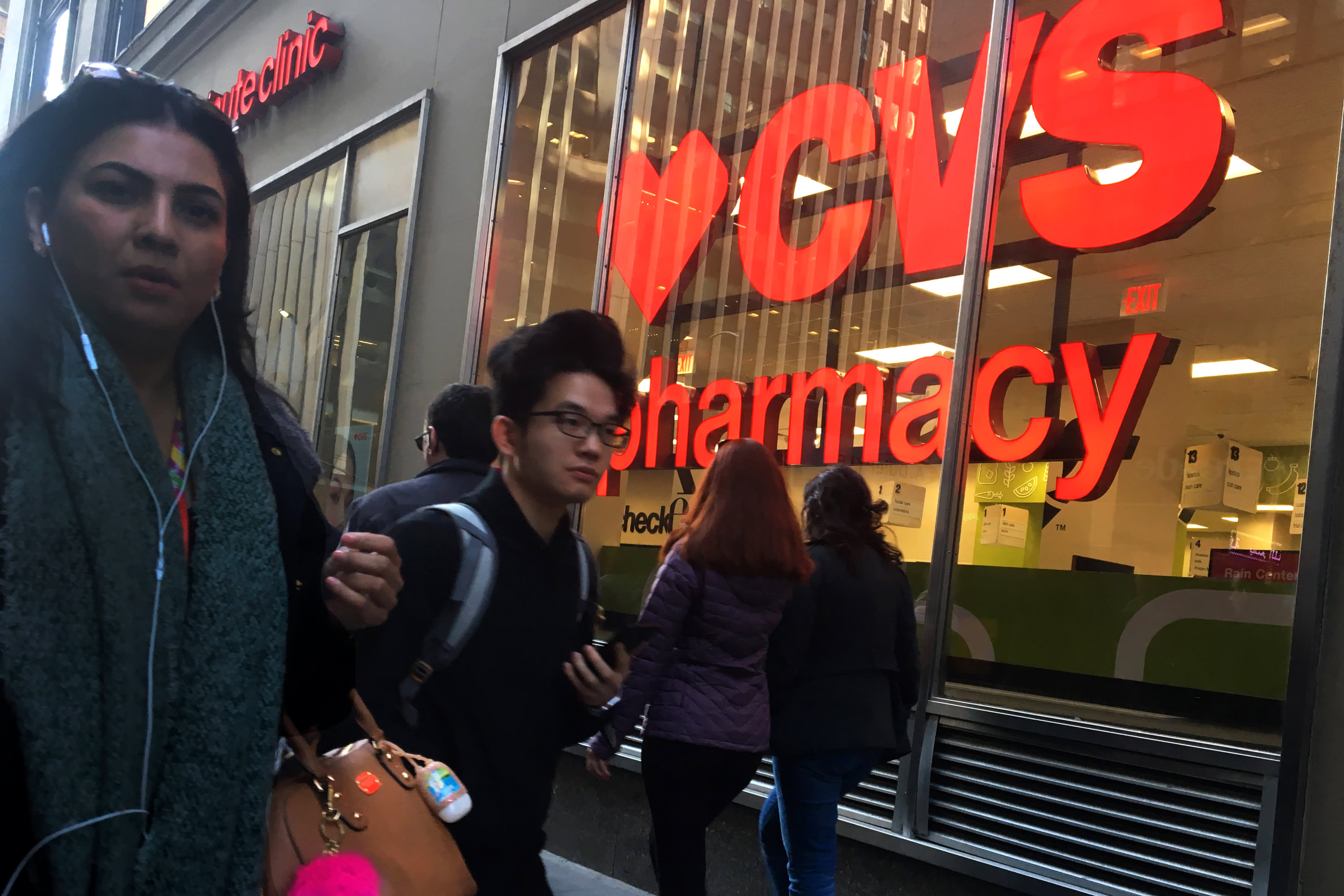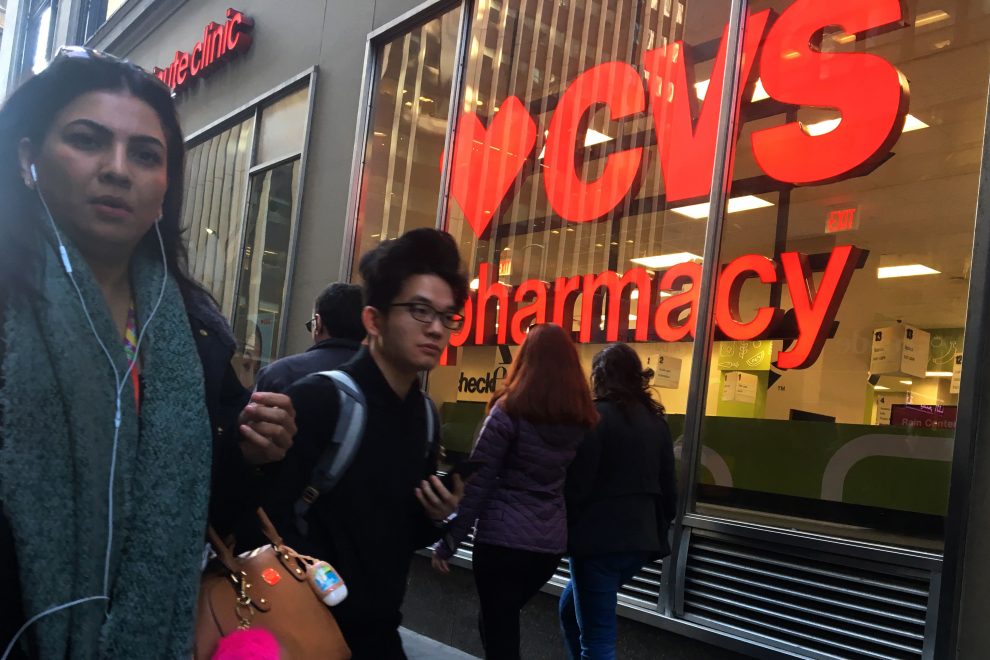
Pedestrians pass in front of a CVS location in New York.
Scott Mlyn | CNBC
CVS Health on Wednesday crushed first-quarter expectations and raised its full-year forecast as the company’s newly acquired health insurance business boosted results and its pharmacies filled more expensive prescription drugs.
Its stock price jumped 4%.
Here’s what the company reported compared with what Wall Street was expecting, based on average analysts’ estimates compiled by Refinitiv:
- Adjusted earnings per share: $1.62 vs. $1.50 expected
- Revenue: $61.65 billion vs. $60.39 billion expected
This was the first full quarter since CVS closed its $70 billion acquisition of health insurer Aetna in November. Revenue for CVS’ health-care benefits segment, which also includes CVS’ SilverScript business, topped expectations at $17.87 billion.
CVS’ retail business also performed better than the Street expected, with same-store sales increasing 3.8%. CVS attributed higher sales in the front of the store to focusing more on health products. In the pharmacy, CVS said selling more expensive branded prescription drugs helped offset more generic drugs and lower payments from insurers.
Drugstores are trying to stay relevant as people shop online more. CVS is testing three stores in Houston called HealthHUBs that include a lab for blood testing and health screenings,wellness rooms for yoga and seminars, dietitians and respiratory specialists.
The concept stores are performing “at or above” CVS’ expectations, so the company will expand them and “fill out the Houston market,” Merlo said. CVS said it will share more details on its expansion plans at its investor day next month.
CVS and rival Walgreens Boots Alliance have said pressure to lower prescription drug costs is threatening their profits. Companies across the prescription drug supply chain are feeling heat from lawmakers, some of whom are calling to overhaul how drugs are paid for.
A number of Democratic lawmakers and 2020 presidential hopefuls are pushing “Medicare-for-All” proposals that would eliminate private health insurance and replace it with a universal Medicare plan. CVS CEO Larry Merlo on a post-earnings call said recent attention around “access to affordable quality health care” is an “important discussion” and that CVS will continue to be “an active participant” in.
“That said, regardless of what shape and form the next stage of health care takes we remain confident that the private sector will play an essential role in both shaping and executing that next stage,” Merlo said. “And importantly we remain best positioned to create and capture new opportunities in this ever-evolving landscape through our local assets our end-to-end health care offerings and our ability to drive engagement positively impacting consumer health.”
On an unadjusted basis, CVS’ fiscal first-quarter net income rose to $1.42 billion, or $1.09 per share, up from $998 million, or 98 cents per share a year earlier. When excluding the costs of integrating Aetna, store closures and some other items, CVS earned $1.62 per share, above the $1.50 per share expected by analysts surveyed by Refinitiv.
Revenue rose 35% to $61.65 billion — largely driven by the new Aetna business — beating expectations of $60.39 billion.
CVS raised its 2019 earnings forecast to between $6.75 and $6.90 per share, up from the previously guided range of $6.68 to $6.88 per share. Investors punished CVS earlier this year for initially guiding well below the Street’s expectations.
“The upward revision of the company’s 2019 operating income guidance is encouraging although it comes after the company guided to a significantly lower operating income for 2019 in its fourth quarter earnings call,” Moody’s Vice President Mickey Chadha said in a statement.









